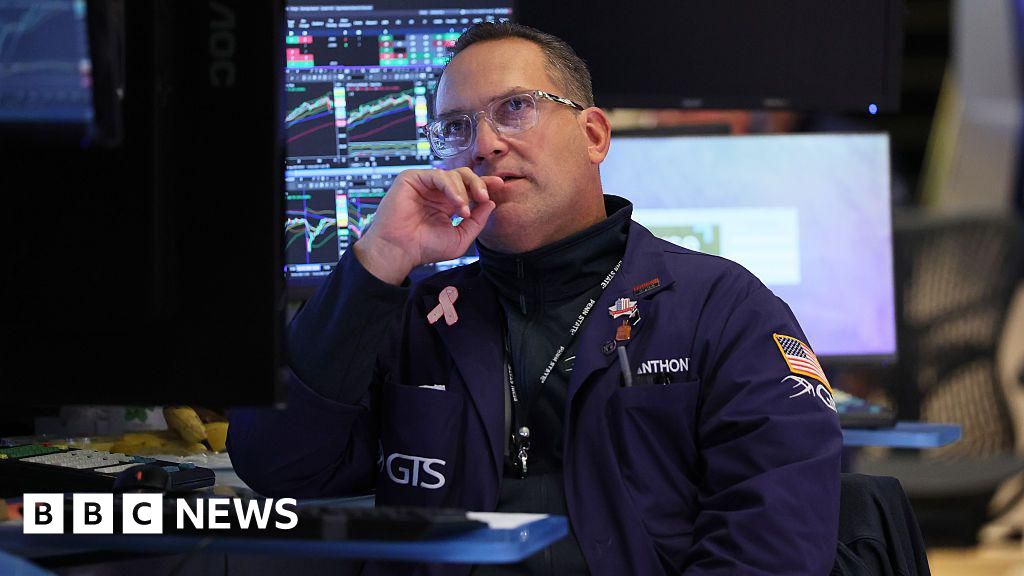Certainly! Here is your 1200-word summary of the news article, rewritten into clear, well-structured paragraphs:
---
**US Financial Markets: Navigating a Landscape of Jitters and Resilience**
In recent months, the US financial markets have been on a rollercoaster ride, with investors grappling with episodes of anxiety and uncertainty almost every week. From concerns about regional banks and potential fraud to broader worries about global trade tensions and the sustainability of the stock market rally, a complex web of factors has shaped investor sentiment in 2024.
**Banking Sector Woes Spark Fresh Concerns**
The most recent bout of nerves originated in the US banking sector. Two regional lenders issued warnings that they were likely to incur losses due to alleged fraud, sending ripples of unease throughout the financial markets. These warnings reignited lingering fears about the health of smaller banks—a concern that has periodically surfaced since the high-profile banking collapses of previous years. The revelation led to a swift reaction from investors, who began reassessing the risks in their portfolios and reducing their exposure to potentially vulnerable financial institutions.
This episode followed closely on the heels of other unsettling developments, such as the bankruptcies of two significant players in the automotive industry: First Brands, a car parts supplier, and Tricolor, a lender specializing in subprime car loans. Both failures served as reminders that beneath the surface of economic growth, vulnerabilities remain—especially among companies that operate on thin margins or cater to riskier segments of the market.
**Geopolitical Tensions Add to the Volatility**
Adding another layer of complexity, tensions between the United States and China have resurfaced as a source of market volatility. The two economic superpowers have been engaged in an escalating conflict over tariffs, access to advanced technology, and control of critical resources like rare earth elements. Such disputes have far-reaching implications, not only for the companies directly involved but also for the broader global economy.
Signs of renewed US–China friction have made investors jittery, triggering sell-offs and renewed debates about the long-term outlook for global trade. Each new round of tariffs or export restrictions brings with it concerns about supply chain disruptions and the potential for retaliatory measures, which could affect a broad swath of industries.
**Stock Market Performance: Resilience Amid Swings**
Despite these recurring episodes of fear and uncertainty, the major US stock indexes have shown remarkable resilience. Over the past month, the upward momentum that characterized the first part of the year has slowed, with share prices flattening after a long rally. At its steepest, the recent market pullback saw the indexes decline by about 3%—a move that, while notable, is not particularly severe by historical standards.
Zooming out for a broader perspective, the market’s performance remains robust. Since the beginning of the year, the S&P 500 index has climbed around 13%. While this is a more modest gain compared to some previous years, it nonetheless represents a solid advance, especially given the backdrop of uncertainty. Sam Stovall, chief investment strategist at CFRA Research, notes that this resilience has been driven in part by improving corporate profits and widespread enthusiasm for artificial intelligence (AI), which has captured the imagination of both investors and business leaders.
**Market Valuations and Bubble Fears**
Ironically, it is the strength of the stock market that is giving rise to some of the current anxiety. By traditional measures—such as the ratio of stock prices to underlying corporate profits—US equities appear expensive. This has led to mounting concerns about a potential bubble, especially in sectors linked to artificial intelligence and other cutting-edge technologies.
The AI industry, in particular, has been under the microscope. Since the start of the year, observers have questioned whether the vast sums of money being poured into AI development are sustainable or justified by future earnings. As major technology firms invest billions to outpace their rivals, some analysts are struggling to reconcile these investments with the projected returns, sparking fears that prices may have outstripped reality.
Such concerns have not gone unnoticed by policymakers and financial authorities. The Bank of England recently cautioned that certain market valuations appear “stretched,” warning of a heightened risk of a “sharp market correction.” These warnings have been echoed by influential figures such as Jamie Dimon, CEO of JP Morgan Chase, and, to a lesser degree, Jerome Powell, chair of the US Federal Reserve.
The International Monetary Fund (IMF) added its voice to the chorus just

